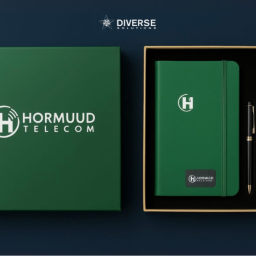
Corporate gifting is a fantastic way to show appreciation, strengthen business relationships, and build loyalty with clients, employees, or partners.
But there’s a fine line between giving a thoughtful gift and one that may feel like a bribe.
In today’s business world, where ethics and transparency are crucial, it’s important to choose gifts that convey goodwill without crossing into questionable territory.
So, how do you strike the perfect balance?
This guide will help you choose a right corporate gift, understand the subtle differences between a gift and a bribe, share practical tips for choosing the right corporate gift, and highlight common pitfalls to avoid.
Understanding the Fine Line Between Gifts and Bribes
Corporate gifts aim to foster goodwill and strengthen business relationships, but when they’re extravagant or come with expectations, they can be seen as bribes.
This perception can harm your reputation and even lead to legal or ethical issues.
The difference between a gift and a bribe often comes down to intent.
A genuine gift is freely given with no expectation of return, while a bribe aims to influence behavior, decisions, or actions in the giver’s favor.
For instance, offering a modest gift during the holiday season to show appreciation is generally seen as a thoughtful gesture.
However, gifting an expensive watch right before a contract negotiation could raise ethical concerns and may be seen as an attempt to sway the outcome.
The key to successful corporate gifting lies in maintaining transparency, ensuring the value is appropriate, and choosing gifts that are relevant, thoughtful, and ethical.
Choose a Right corporate Gift
To avoid any misinterpretation, the right corporate gift should be thoughtful, practical, and aligned with both the giver’s and recipient’s values.
Let’s break down how to choose a gift that doesn’t feel like a bribe:
Practicality
One of the best ways to ensure your gift comes across as thoughtful, not excessive, is to choose something practical. A useful item—like a branded water bottle, sleek notebook, or quality pen—shows you understand the recipient’s needs without going overboard.
According to a PPAI study, 81% of people keep promotional products (which include corporate gifts) for more than a year if they are practical and useful.
Personalization
Personalized gifts are a great way to show appreciation without appearing too extravagant.
Whether it’s a customized journal with the recipient’s initials or a tailored tech accessory, adding a personal touch makes the gift more meaningful while steering clear of the “bribe” perception.
Personalization shows thoughtfulness and effort, making it less likely that the gift will be misinterpreted as anything other than a gesture of goodwill.
Relevance
A relevant gift demonstrates that you’ve put thought into the recipient’s role, interests, or industry.
For example, if your recipient works in tech, a practical gadget like a wireless phone charger makes sense.
If they work in finance, a stylish yet modest desktop organizer could be appreciated.
This shows that the gift is tailored to the individual’s needs rather than being a one-size-fits-all, expensive luxury.
Value
Corporate gifts should strike the right balance between value and affordability.
A gift that’s too cheap can seem careless, but something too expensive can raise eyebrows.
Research by NBER shows that recipients value gifts more based on the thought behind them, rather than the price tag.
A good rule of thumb is to keep the gift within a moderate price range, depending on the context.
Something small and meaningful, like a curated gift basket or high-quality coffee, can have a much bigger impact than an expensive luxury item.

Avoiding Common Pitfalls
Even with the best intentions, there are common mistakes businesses make when choosing corporate gifts.
To ensure your gift comes across the right way, avoid these pitfalls:
Avoid gifts that are too expensive
Giving a very expensive or extravagant gift can make the recipient feel uncomfortable or like they need to return the favor, which might create the impression of bribery.
It’s best to choose gifts that match the occasion and your professional relationship.
Be careful about timing
Giving a gift right before or after a big business decision, like a contract negotiation, might look like you’re trying to influence the outcome.
To avoid this, give gifts during neutral times, such as holidays or company anniversaries, when there’s no business pressure involved.
Be aware of cultural differences
In some cultures, certain gifts can carry unintended negative meanings.
For example, in some Asian cultures, giving a clock can signify bad luck, or giving a knife could symbolize cutting ties.
Always research the recipient’s culture to ensure your gift is respectful and appropriate.
Avoid gifts that are too personal
In a professional setting, it’s important to keep boundaries clear.
Gifts like jewelry or clothing can feel too personal and may cross those lines. Stick to neutral gifts that are thoughtful but not overly intimate.
Ethical Considerations
When giving corporate gifts, it’s important to maintain high ethical standards to ensure your gift is received in the right way.
Here are a few key ethical points to keep in mind:
Be transparent
Always be clear about why you’re giving the gift.
Whether it’s part of a holiday tradition or a company-wide initiative, explain the reason behind it.
This helps avoid any misunderstanding that the gift might be meant to influence business decisions.
Follow the rules
Most companies have policies on gift-giving, including limits on how much you can spend or rules on giving to vendors, clients, or partners.
Make sure you’re familiar with the guidelines of both your company and the recipient’s organization so that your gift complies with the rules.
Give with good intentions
The best corporate gifts are those given with genuine intent, like showing appreciation or building a relationship.
It’s important that your gift reflects these positive motives.
Don’t give gifts to gain favors or influence decisions—that’s unethical.

Examples of Appropriate Corporate Gifts
Choosing a corporate gift that feels thoughtful yet appropriate can be a challenge.
Here are some ideas that strike the right balance:
Experiences
Consider giving tickets to events, classes, or workshops.
Experiences often create lasting memories and can be more appreciated than physical gifts.
For example, you could offer tickets to a relevant industry conference, a virtual cooking class, or a local workshop that matches the recipient’s interests.
Personalized items
Customized gifts, like a personalized notebook or a branded phone stand, can show that you appreciate the recipient without being overly extravagant.
Adding a personal touch can make the gift feel special and thoughtful.
Gift baskets
Curated gift baskets are flexible and can be customized to suit different tastes.
You could create a basket filled with gourmet snacks, specialty teas, or even eco-friendly products.
This type of gift is thoughtful and allows the recipient to enjoy a variety of items without feeling overwhelmed.
Final Thoughts
Corporate gifting builds and strengthens relationships, but companies must tread carefully to avoid appearing bribery.
By focusing on practicality, personalization, and relevance, you can choose a corporate gift that conveys appreciation and professionalism without raising any ethical concerns.
Always be mindful of the timing, value, and context of your gift, and remember that transparency and intent are key to ensuring when you choose a well-received corporate gift.
For more insights on corporate gifting strategies and to explore a wide range of customizable eco-friendly options, visit Diverse Solutions.
















